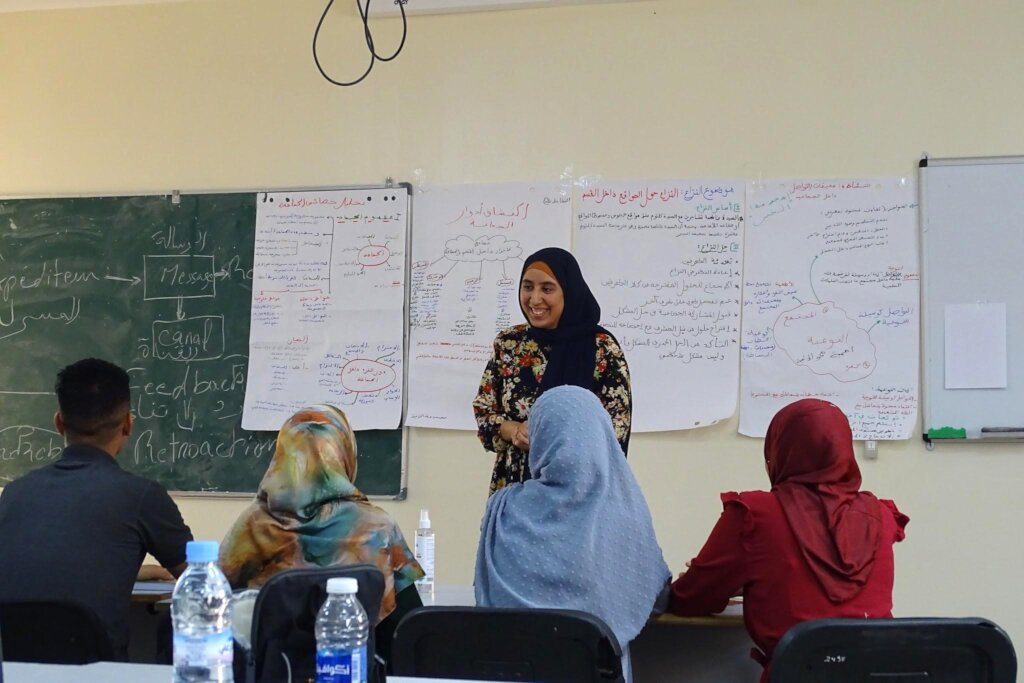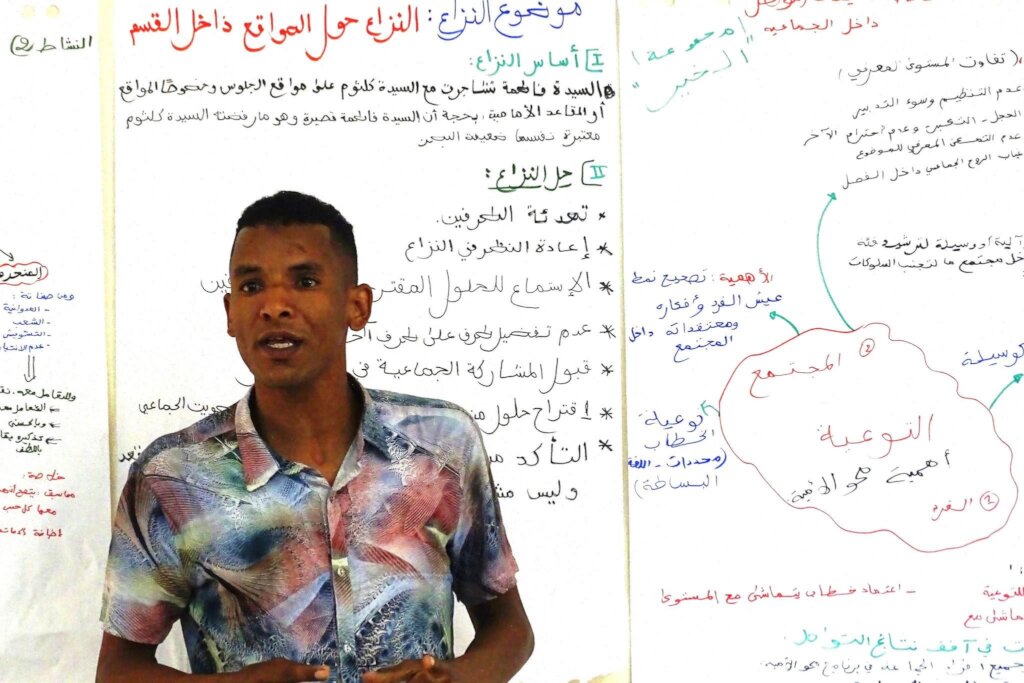By Ellen Hernandez | HAF Writer/Editor
On a sunny Friday morning in Marrakech, a group of twenty women and their Cadi Ayyad University student counterparts enthusiastically trained to become literacy instructors. Upon arrival on the Faculty of Sciences campus to observe the training, visitors entered the large room where a female and a male professor were already collaboratively presenting the morning’s lesson. How exciting it was to witness these intelligent young people attentively writing their notes and answering the questions put to them, their earnest faces full of hope for the future of their nation. Moreover, how gratifying it was to be treated so warmly among them just for showing support for their endeavors, their hands to their hearts in humble “salaam” greetings, their quiet nods of “alhamdulillah” demonstrating their appreciation for the opportunity.
Moroccans have such a facility with moving in and out of speaking different languages: Tamazight, Arabic, Darija, French, English, and more, sometimes within a single conversation. Yet, due to limitations in accessing formal education, whether from their experience of poverty, the constraints of their geographical location, or their family’s circumstances and cultural traditions, many have not had the opportunity to continue their schooling to the point of literacy: reading and writing in the languages they speak.
The High Atlas Foundation (HAF) is implementing a two-year program of family literacy activities in the Marrakech-Safi and Beni Mellal-Khenifra regions that will impact 40 communities, 800 women and their families, including preschool education for their children. The teachers and students in that morning’s room were well aware of what this program means for their own futures and for the lives of their families, neighbors, and friends, and their wide smiles of welcoming hospitality (for which Moroccans are known the world over) proved that awareness.
A small group exercise gave them the chance to converse with their peers about the lesson’s concepts and to prepare practice lessons of their own. Sitting in on their activity, one noticed the deference of the women to their male peers and the authority the male peers took. Yet, these women had something to say. With some gentle nudging from an observer, the group’s male leader refrained from interrupting and allowed the women to find their voice. The ideas proved to be valuable, and the group proceeded rapidly with completing the exercise. When contribution is equal, more is accomplished, and this is an important lesson for all to learn.
They are becoming teachers, one of the most noble professions in society. They are learning pieces of what makes effective teaching and learning in a classroom setting: ensuring that students understand instructions, interacting with students to check on their progress instead of sitting down and waiting for them to complete desk work, facilitating group work by asking questions that lead students to the answers, and assisting in working out differences of opinion. As they presented their sample lessons, they were encouraged and applauded for their efforts. For someone who has enjoyed four decades as an educator, the scene stirred emotions.
A shared lunch of tajine and bread as the afternoon grew hotter afforded the visitors and students a chance for conversation in a mix of Arabic and English. The young women preparing to return to their communities as literacy instructors wore modest head coverings and talked fondly about their home villages. They asked about life in the U.S., and they expressed what they love about Morocco. Their eyes were full of laughter and sweetness and hope, and one could not help but smile in return, wishing the time together did not have to end. We bid a fond farewell with expressions of thanks for attending, with embraces and kisses on the cheek. If only we could continue with them on their journey and observe who they are becoming, watch them change their communities and their country for the better. One day, perhaps, inch’allah.
Project reports on GlobalGiving are posted directly to globalgiving.org by Project Leaders as they are completed, generally every 3-4 months. To protect the integrity of these documents, GlobalGiving does not alter them; therefore you may find some language or formatting issues.
If you donate to this project or have donated to this project, you can receive an email when this project posts a report. You can also subscribe for reports without donating.
Support this important cause by creating a personalized fundraising page.
Start a Fundraiser
